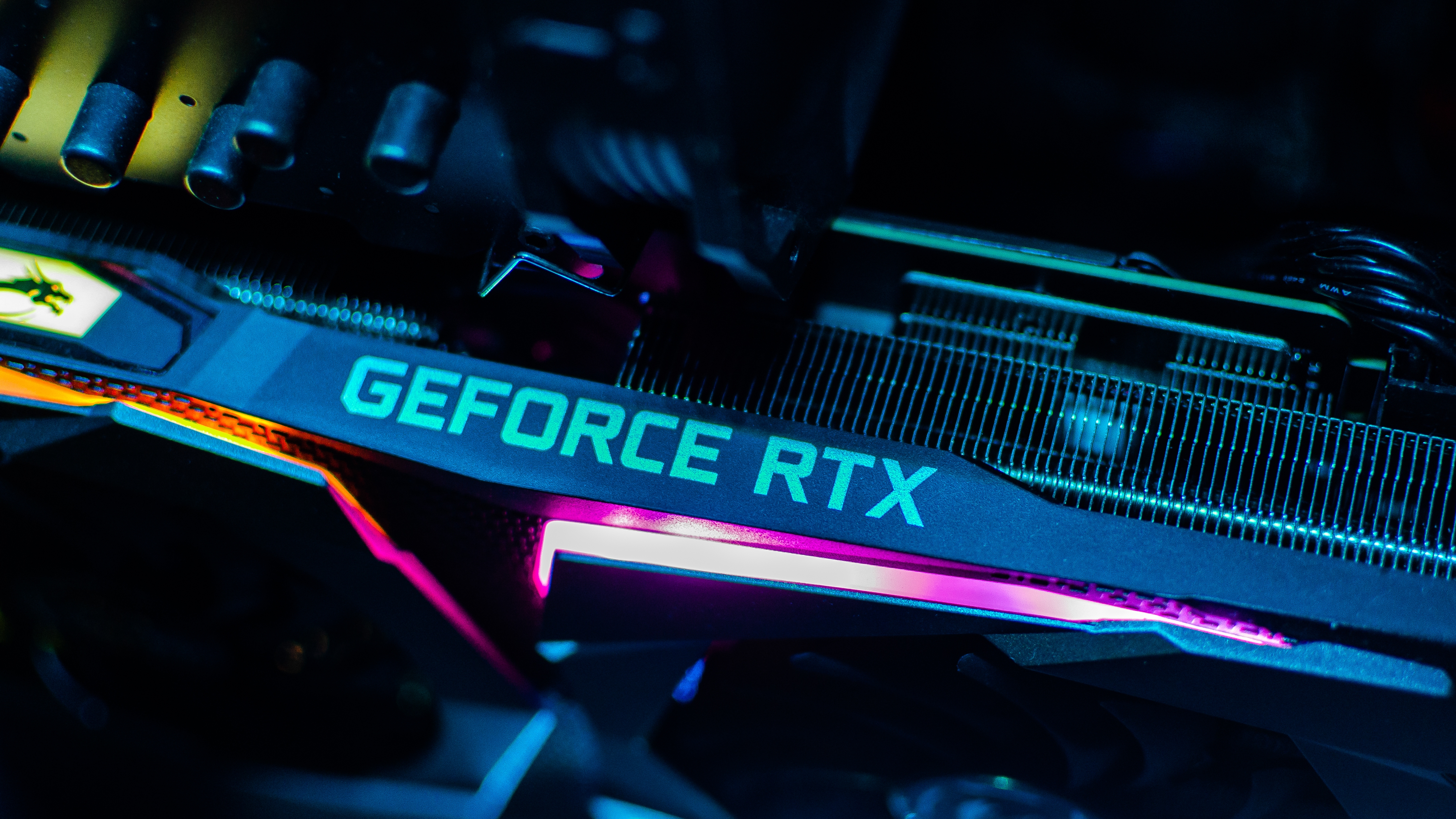
Nvidia launching RTX 50-series GPUs at CES 2025 seems to be a sound bet by this point. While nobody can say for certain given we’ve just seen a smattering of leaks and rumors, we just got the clearest indication thanks to an accidental reveal.
PC gaming company Zotac added (and quickly removed) the GeForce RTX 5090, 5080 and 5070 GPUs on its website, but not fast enough for Video Cardz to not grab screenshots. Not only did we get a sight of the names, but we also caught a glimpse of some of the more important specs for high-fidelity gameplay.
In short, I’m excited about the pure horsepower these have, but my electric bill is going to sweat a little. But let me go into more detail.
What was leaked?
Through the website’s online store filter and Google search result meta descriptions, we’ve managed to confirm the following five GPUs:
For context, the D variant of the RTX 5090 is the model that will be released exclusively in Japan.
Unlimited power
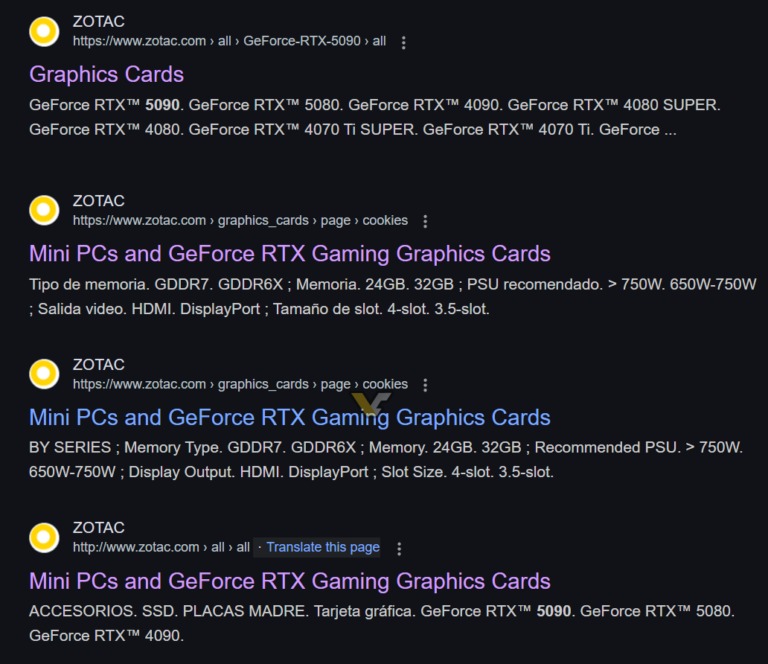
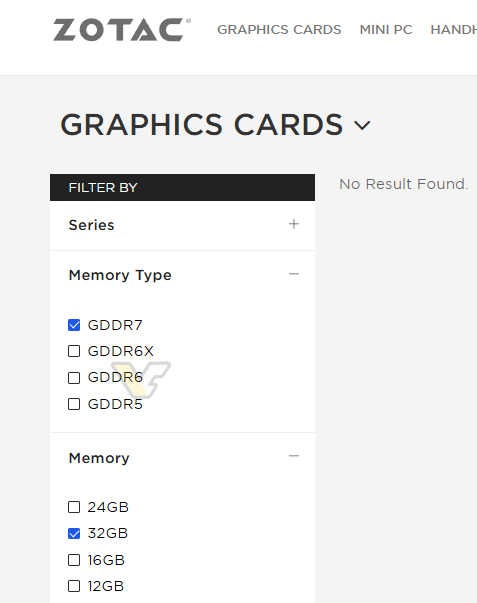
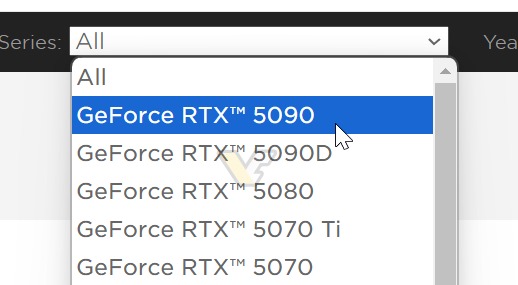
Yes, Palpatine may have been a little dramatic here, but the key spec of the top-of-the-range RTX 50-series is its use of GDDR7 memory over the GDDR6 you saw in the likes of the 4090.
The main reason this is important is the speed of accessing important data on the fly could be up to 60% faster, while potentially using roughly 20% less power while doing so. On top of that, separate rumors point to the amount of CUDA cores going up possibly by up to 33%.
This will drastically increase the number of parallel computations the GPU can handle — meaning your shiny new card will be able to balance all kinds of graphical processing from maintaining fidelity at high resolutions while calculating ray tracing and path tracing. Quicker and more power-efficient is the name of the game for the next generation.
The power grid’s not going to like you
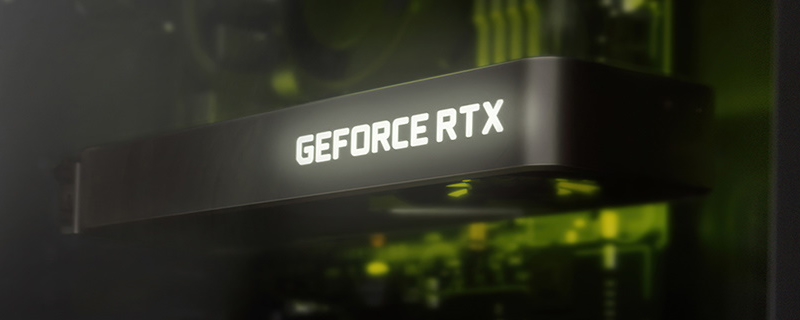
Going back to Zotac’s leak, using RTX 5090 as an example, there is 32GB of GDDR7 memory on board — a third more than the previous king of the mountain in the RTX 4090. This is the part that gets me a little nervous, as that nullifies the 20% decrease in power demands with more storage.
So with a little quick math (again, this is all very much based on tying together a few rumors), with the TGP of the RTX 4090 at 450W, the RTX 4090 could stand at 480W — that’s before even considering any overclocking possibilities.
Taking the average electricity rate in the U.S. (16.83 cents per kilowatt-hour), that’d come up to a potential running cost of 40 cents per day, which is drastically more than any game console or integrated graphics option and could really start to add up (before even considering the rest of the system’s power draw).
Don’t get me wrong. I know this won’t be a problem for everyone, but it’s certainly something you should consider deciding between — the pure horsepower of a dedicated GPU, or the better balance of an integrated option while compromising some of those capabilities.
Where is the RTX 5060?
This is a good question. We reported on an RTX 5060 leak yesterday but it’s not in Zotac’s lineup. I’m still quietly confident we’ll see this form part of what is announced by Nvidia (maybe Zotac is dodging this one for the initial launch), but time will tell.







